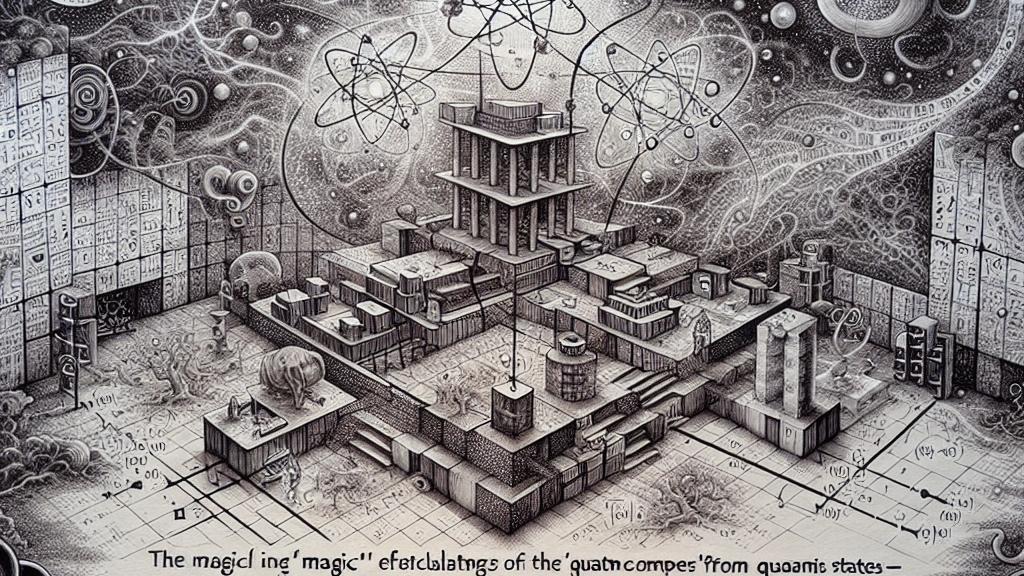Exploring Phase Transitions in Quantum Systems
Overview
- Revolutionary study reveals the intricate nature of phase transitions tied to 'magic' in quantum computing.
- Magic states play a transformative role, enhancing quantum systems' capabilities beyond classical limitations.
- Findings suggest significant advancements toward developing highly efficient, error-resistant quantum computers.

Understanding Magic in Quantum Computing
In the mesmerizing realm of quantum computing, especially within research hubs in the United States, the concept of 'magic' represents a key component in understanding how quantum systems achieve their potential. Magic refers to the unique characteristics of quantum states as they deviate from stabilizer states—those simpler configurations easily mimicked by classical machines. Consider this: during complex calculations involving entangled or superimposed states, quantum computers harness magic to elevate their power exponentially. A pioneering study involving researchers from the University of Maryland, NIST, and IonQ ventured into the behavior of random stabilizer codes when subjected to coherent errors. Their pivotal findings not only elucidate the significance of magic but assert that comprehending these mechanisms is fundamental for engineering next-generation quantum technologies, which could dramatically reshape computation as we know it.
The Phase Transition Phenomenon
The researchers embarked on a captivating exploration to discern whether the phase transitions previously documented in entangled systems also manifest within the mysterious realm of magic states. Astonishingly, they uncovered that these transitions showcase a fascinating interplay between creation and destruction of magic within quantum systems. Picture this scenario: when quantum circuits operate, they have the power to enhance or, conversely, diminish the magic state. It's akin to performing acrobatic feats on a tightrope, where each precise movement alters the delicate balance. This groundbreaking research expands our understanding of phase transitions, suggesting new avenues for technological innovation. For example, mastering the balance of magic states could lead to more efficient error correction techniques, paving the way for practical, resilient quantum computing solutions.
Implications for Future Quantum Computing
As we navigate the intersection of classical and quantum computing, studies like these are far from mere academic exercises; they serve as critical guidelines that could fundamentally influence the future landscape of technology. The ongoing investigation into optimized methods for magic state preparation, often referred to as 'magic state cultivation,' exemplifies the diligent efforts of engineers striving to fine-tune quantum circuits while minimizing errors. Imagine the possibility: as these processes become more refined, quantum computers may not only maintain their competitive edge over classical systems but also redefine the boundaries of what is technologically achievable. The implications are profound—each stride made in understanding magic states pushes us closer to fully unleashing the extraordinary capabilities of quantum machines, potentially revolutionizing fields like cryptography, material science, and beyond, ushering in a new era of technological advancements.

Loading...